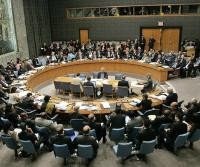Diplomats at the United Nations experienced something approaching euphoria at the end of last week. The annual gathering of world leaders for the U.N. General Assembly, in most years an exhausting and tedious exercise, had turned into a nail-biting drama. International and official commentators were gripped by two questions. Would the Security Council make a deal on the destruction of Syria’s chemical weapons? Could the U.S. and Iran move toward rapprochement over Tehran’s nuclear goals?
Neither outcome was guaranteed, but the week culminated with a pair of diplomatic coups. On Friday afternoon, President Barack Obama reported that he had made a cordial phone call to his Iranian counterpart, Hasan Rouhani, rounding off a series of positive if tentative interactions between their advisers. Then the Security Council unanimously passed Resolution 2118, endorsing Russian and U.S. proposals to destroy Syria’s chemical arsenal by mid-2014. This was a gigantic relief for diplomats who just a few weeks ago faced the prospect of Washington launching airstrikes on Syria without U.N. authorization.
If such strikes would have done the U.N. immense damage, it is tempting argue that last week’s diplomacy has reaffirmed the organization’s relevance in world affairs. Yet this optimism may not last. The Security Council’s ability to shape events in the Middle East remains sorely limited—and it may be shaken by mounting crises in Africa that received relatively little attention during the past week’s drama.

